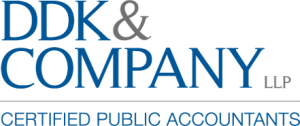
New York City’s “Freelance Isn’t Free Act (FIFA)” is a Trap for Unwary Employers
New York City’s City Council recently passed the Freelance Isn’t Free Act (“FIFA”), which takes effect on May 15, 2017. As its name suggests, FIFA will make hiring single person independent contractors much more expensive for employers who run afoul of its strict provisions. FIFA is the first law of its kind in the country.
Definitions:
FIFA defines a “freelance worker” as “any natural person or organization composed of no more than one natural person, whether or not incorporated or employing a trade name, who is hired or retained as an independent contractor by a hiring party to provide services in exchange for compensation.” [Emphasis added.]
Basic provisions:
Under FIFA, NYC employers must enter written contracts with independent contractors being paid $800 or more over a 120-day period. Contracts must specify the nature of services provided, the parties’ names and addresses, and the time in which payments will be made. Unless the contract specifically provides for a longer payment period, employers must pay independent contractors within 30 days of the date that services are performed regardless of when an invoice is received.
The law does not apply to sales representatives, attorneys, or licensed medical professionals.
Penalties:
FIFA allows independent contractors to file private causes of action and recover significant damages. Failing to enter a qualifying contract automatically entitles an independent contractor to a $250 award. Failing both to enter a written contract and timely pay amounts owed may result in treble damages: an award of the contract price for failing to enter the required contract and an award of double damages equal to the amounts owed. Refusing to deal with an independent contractor who insists on a written contract, moreover, may result in a retaliation claim entitling the contractor to an award equal to the value of services at issue. Finally, a prevailing plaintiff may recover reasonable attorney’s fees regardless of the amount of damages awarded.
In short, FIFA creates a minefield for unwary NYC employers, especially those who routinely hire significant numbers of independent contractors based on oral agreements and render payment only after receipt of an invoice.
In addition, the Act imposes a $25,000 civil penalty, payable into the City’s general fund, for hiring parties found to have a pattern or practice of violating FIFA.
Problems with the law:
FIFA does not provide for a “good faith” defense.
While some independent contractors hold themselves out as individuals, many individuals operating as limited liability companies (LLCs) or under trade names do not disclose that they are actually only single-individual operations. Without a requirement that the freelancer disclose that he/she is a one-person operation, many companies that retain the services of such individual freelancers operating as LLCs or under trade names may have no idea they are or may be covered by this bill, should it become law. The bill should have required that an individual is only a “freelance worker” under this law if he/she makes this disclosure.
Another defect is that the bill does not make clear if a freelance worker who has one or more employees or helpers, or uses subcontractors, is considered an “organization of no more than one natural person.”
There is no language in the bill as to whether it covers freelance workers who reside in New York City but provide or deliver services to a service recipient outside the city; whether it covers work performed in the city by a contractor using a business or mailing address outside of the city; or if it covers contracts where the only connection to the city is that the services are used or deployed in the city in whole or in part.
Frequently, such terms are negotiated these days in a series of emails or other electronic communications that can collectively constitute a legally binding contract. Another defect is that there is no clarity in the bill whether a collection of such electronic communications will suffice as a “written contract.”
FIFA mandates that unless the contract specifically provides for a longer payment period, employers must pay independent contractors within 30 days of the date that services are performed regardless of when an invoice is received. It is not uncommon, however, that questions arise as to when a service provider’s services are “complete,” or for disputes to arise over whether the services were satisfactory. These types of questions might be averted if the bill provided that there is no violation of the law unless and until the freelance worker (a) notifies the “hiring party” that the contracted services have been completed, and submits a final invoice for work, and (b) the employer does not set forth a good faith defense against payment.. If these commercially common requirements were in the bill, there would likely be far fewer questions about whether and when payment is due.
Disclaimer:
This advisory is a publication of DDK & Company. LLP. We are publishing this advisory to inform our clients and friends of recent business developments. It is not intended, nor should it be used, as a substitute for specific legal advice by competent legal counsel
